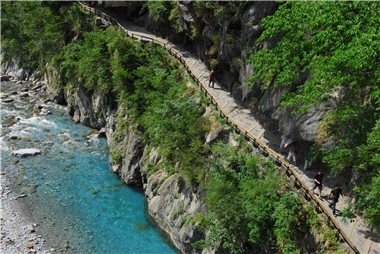
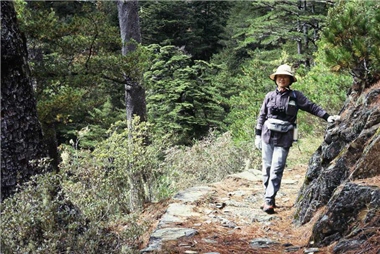
“I am a lucky person who has seen Taiwan in its most beautiful state. A person who cares about conservation usually cares through his/her life.”
— Lucia Liu Severinghaus
In Lucia's memory, people and Nature were very close 50 years ago, even in a metropolis like Taipei. A tomboy in her childhood, Lucia was never the kind of girl who would stay home and dress like a little princess. Instead, she's always outdoorsy, making the Nature her playground in which her love for it has started to grow ever since.
Lucia's academic record was special. She first majored in physics and then English as an undergraduate, before earning her master's degree in literature. This may seem a little strange for some. But for Lucia, she was just pursuing her diverse interests. She said, “People often has more than one interests.” However, neither physics nor literature became her life-long career after her husband introduced her to the world of bird-watching.
After finishing her MA degree abroad, Lucia became a full-time assistant to her husband, who was at that time studying Taiwan pheasants for his PhD. She followed him everywhere and fell in love with his research topic – the fairies in the air. She found out that the birds that sang beautiful songs in her early memories were Chinese Bulbuls (Pycnonotus sinensis), and the beautiful bird perching along tiny streams near her home was the Common Kingfishers (Alcedo atthis).
Lucia's stories often began with “at that time”, a time when people were concerned mostly about basic living and the environment was largely unpolluted. She showed nostalgia for the good old days, a time safe to hitch a ride alone. She talked about wandering in beautiful Formosan Cypress forests, enjoying the solitude composed of giant trees, mosses, with sunshine falling through mountain clouds, scenes one would never forget.
Logging was prevalent in the mountains when she first experienced Taiwan's wilderness . In order to find more birds, Lucia had to go beyond the logging lines. She went to places where a cargo cable was the most effective transportation for both wood and people. Lucia was once stuck half way across a canyon with her husband and some piles of explosives, hanging in midair. Instead of panicking, Lucia was extremely excited because she was able to overlook the forest below and watch the birds in and out of the foliage through mist and fog.
The episode is a good example of her adventurous character. “In the time of poverty, it was already a blessing to be able to live. Working in the mountains was no toil for me,” said Lucia. Mountain researchers at that time were equipped with nothing but ordinary clothing, shoes, and simple tools. Local aborigines and their loyal dogs were the only support. Nevertheless, those difficult days were dearly loved and remembered.
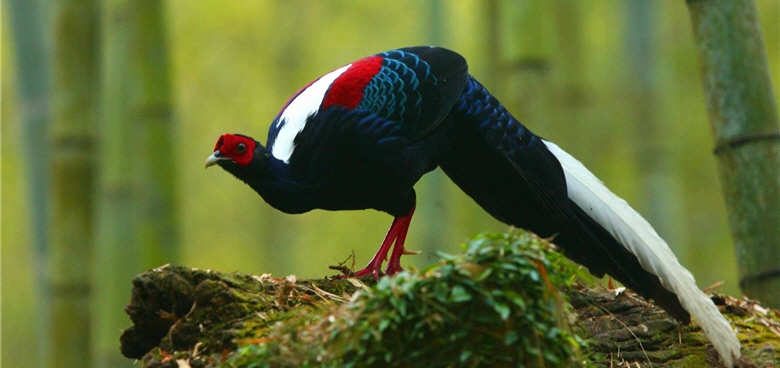
Interview & Text/ Jia-jun Lan
Translator/ Nicole Hsu
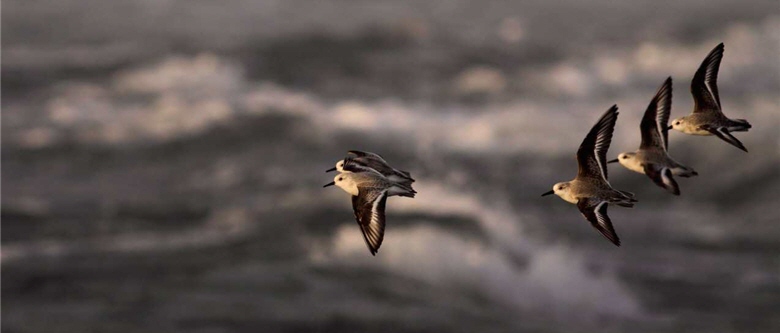
It took patience and concentration to see one's dream birds. Setting off at 2 or 3 am and greeting sunrise deep in the woods were routine operations. In a trip searching for Mikado Pheasant (Syrmaticus mikado) in Mt. Jade, Lucia had searched for months before she caught a glimpse of a male bird. Although it was only a momentary encounter, it was worth it. “I couldn't describe how happy I was,” said Lucia.
The rare Swinhoe's Pheasant (Lophura swinhoii) was very secretive then. Her husband's sharp hearing often came to rescue. Once this led to the discovery of a male pheasant with a long white tail hidden in the broad-leaved forest. Sometimes they were lucky to see a pheasant flying gracefully down the valley, a shocking beauty to behold.
In 1984, Taiwan's first national park was established in Kenting, southern Taiwan, where various ecological studies have since been conducted. But as early as 1968, Lucia did a month of bird banding there. It was a time when fancy hotels and lodgings were nowhere to see. They stayed in a tiny lodge where the housekeeper provided hand-washed sun-dried sheets that were delicious to one's senses. One night Lucia and her co-workers analyzed an owl pellet (indigestible dry material expelled by owls orally) in the sitting area of this lodge. When the pellet was opened, the fetid smell brought the housekeeping lady who had no idea what they were doing.
At that time, they were studying Brown Shrikes (Lanius cristatus). Shrikes were captured by local people for food. The research team bought the shrikes from local people and measured, tagged and released them. The local people would break the shrikes' sharp lower mandibles to avoid being bitten. The team tried to stop the practice by refusing to buy injured birds.
Although people were simple and honest then, they were unfamiliar with the concept of conservation. Economic development already led to some environmental distruction.
Whenever Lucia saw something bad for the environment, she tried to call the attention of the authorities concerned. However, she realized soon that her concern alone was not enough, and she needed some credentials to be listened to. Thus, Lucia studied abroad to obtain another master's degree in environmental education and a PhD degree in natural resources.
Lucia later became a renowned scholar with outstanding achievements in research. However, she never forgot her goal – to build a bridge between humans and Nature for conservation. She was never a researcher in an ivory tower. In 1998, the Common Wealth Magazine listed Lucia among the top 200 influential people in 400 years of Taiwan history to recognize her long-term contribution.
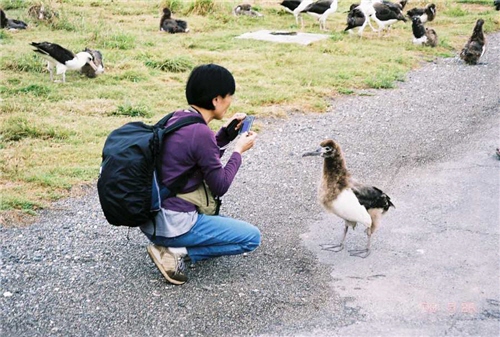
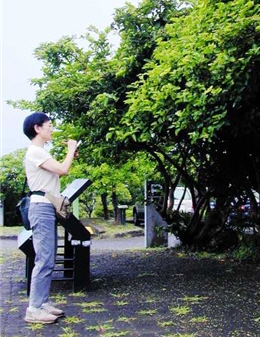
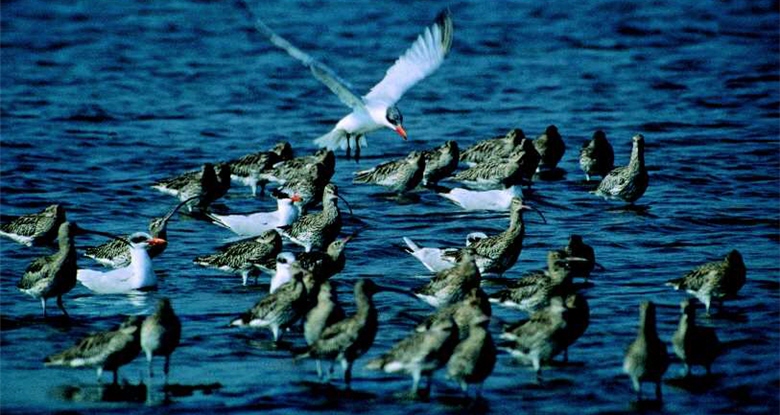
This March (2010), the much-anticipated The Avifauna of Taiwan was published. In fact, National Science Council invited Lucia to do this work two decades ago. She turned down the request at that time, knowing that Taiwan did not have enough data or human resources for such a huge task. It was not until six years ago that Lucia finally accepted the Council of Agriculture's invitation and became the coordinator and author of this encyclopedia of birds in Taiwan. Lucia and five scholars spent six years collecting, reviewing, organizing and validating the scattered bird information, hoping to establish a base line on current knowledge for the birds of Taiwan.
Being a researcher and a conservationist for more than 40 years, Lucia considers herself lucky for she has witnessed the prime of Taiwan's natural beauty. She has enjoyed being with Nature, which is why she has always wanted to do something for it. The public has become more aware of the importance of environmental protection. However, people's thoughts and desires are now more complicated and new technologies are more destructive. It takes only a few hours these days to wipe out a whole forest.
Lucia knows all the predicaments ahead but she is never a person who quits easily. “Do nothing or do the best” is her motto. It was the same spirit that hastened the establishment of Taiwan's national parks, which have preserved the land's precious natural resources. “Taiwan's natural beauty is inferior to none in the world,” said Lucia. For Taiwan's future generations, she will continue promoting conservation. She is willing to communicate and negotiate but will never submit to pressure. Lucia suggests that future research should place importance on both prominent species and the whole ecosystem, thus can help policy development and overall planning.
Lucia admires other countries' devotion to environmental protection. She urges people in Taiwan to respect their environment both for legal compliance reasons and for the love for the land. Although achieving harmony between man and the Nature is an important concept in the Chinese culture, Lucia notices in most Chinese landscape paintings people always drink tea or play board games in a pavilion, implying people gain a sense of security from the man-altered environment, rather than from directly immersed in Nature. For Lucia, the key to people's true respect for Nature and a sustainable ecosystem in Taiwan lies in education.
Although Lucia will retire from Academia Sinica this year, she will continue analyzing the data she collected and caring about the environment and conservation. She will continue to sit on boards and be a member in various private conservation groups and be as “damn busy” as ever. She sincerely hopes that there will be more people to “shoulder the responsibility for conservation together!”

Dr. Severinghaus is not only a researcher of Biodiversity Research Center, Academia Sinica but also a bird and conservation expert. She earned a Ph.D. in Natural Resources and two M.S. in Literature and Environmental Education from Cornell University. She is a member of International Ornithological Committee and was awarded “Person Who Made Significant Contribution To Forestry And Conservation” by Council of Agriculture, Executive Yuan in 2010.
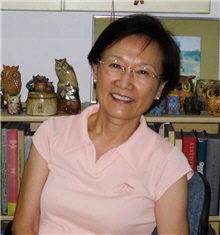


![Text size [Small]](/media/system/images/font_small.jpg)
![Text size [Medium]](/media/system/images/font_normal.jpg)
![Text size [Large]](/media/system/images/font_big.jpg)





